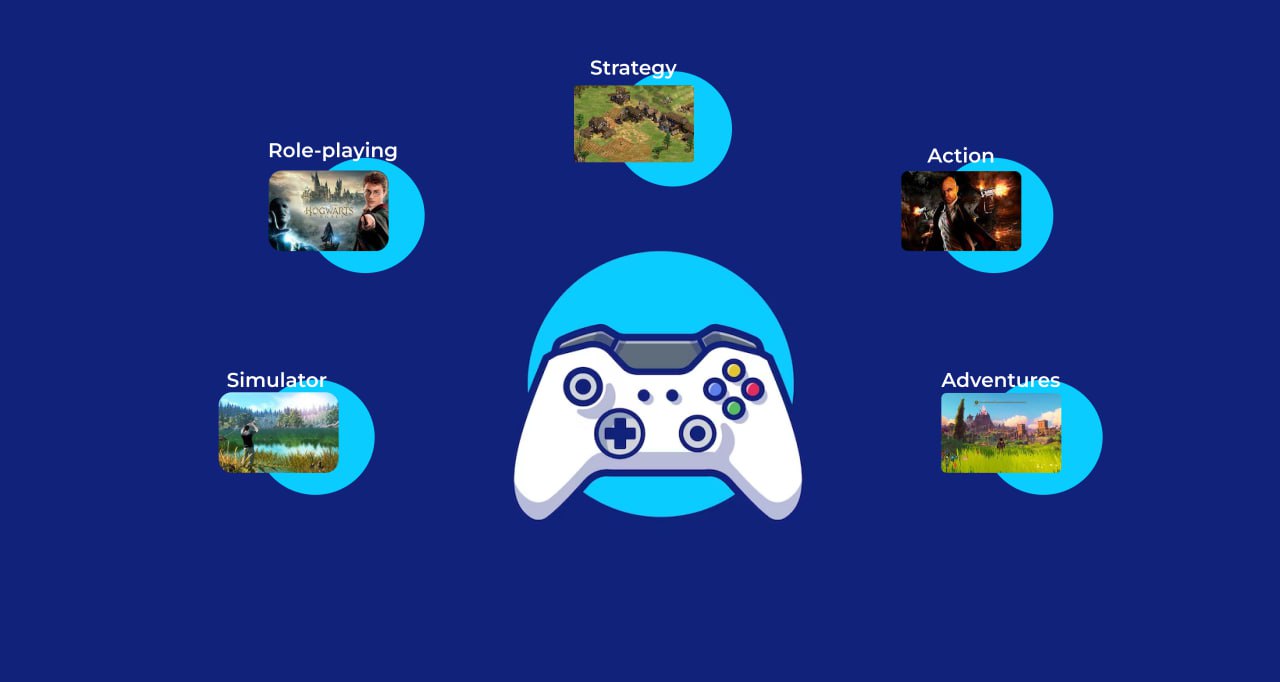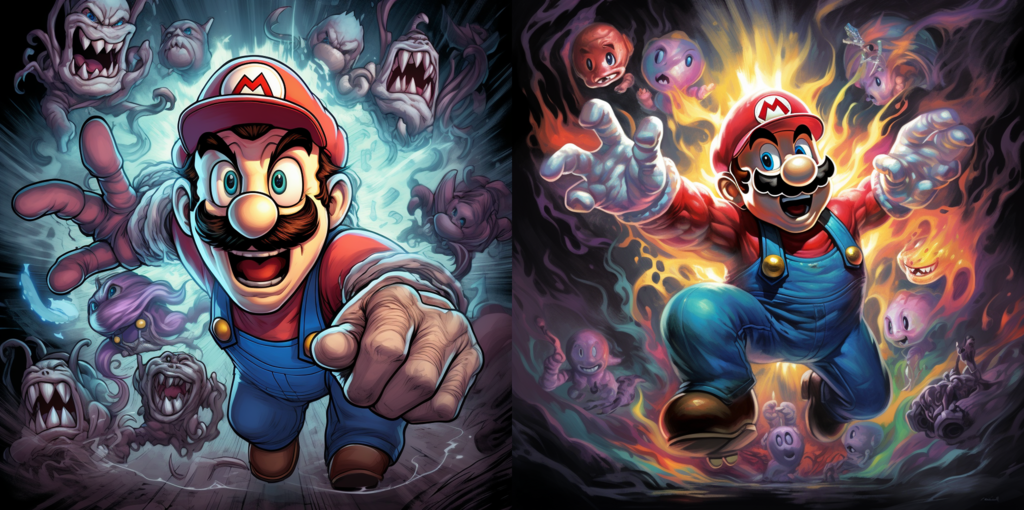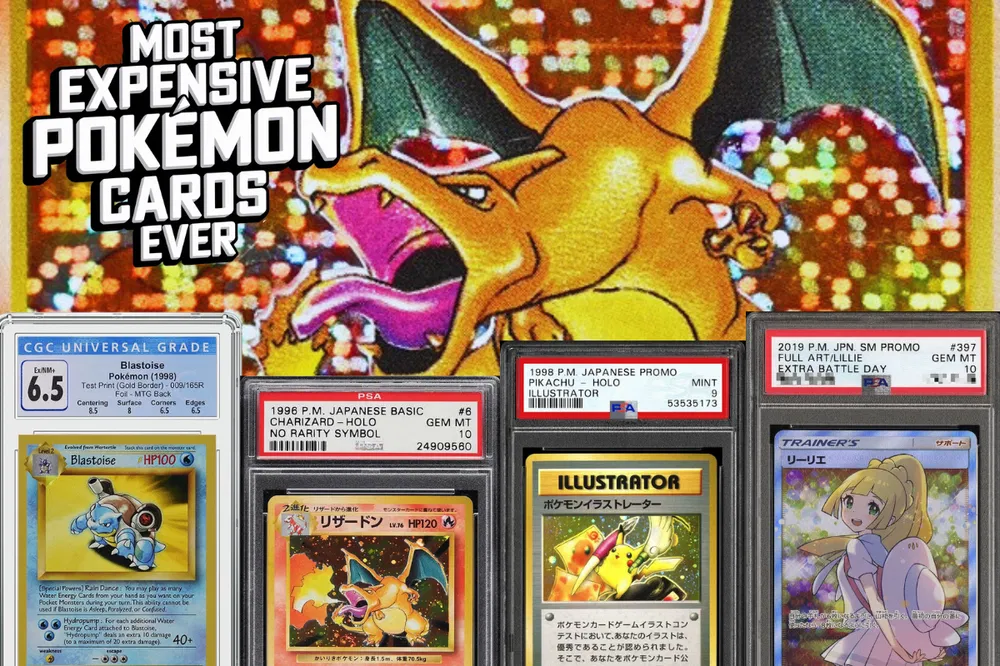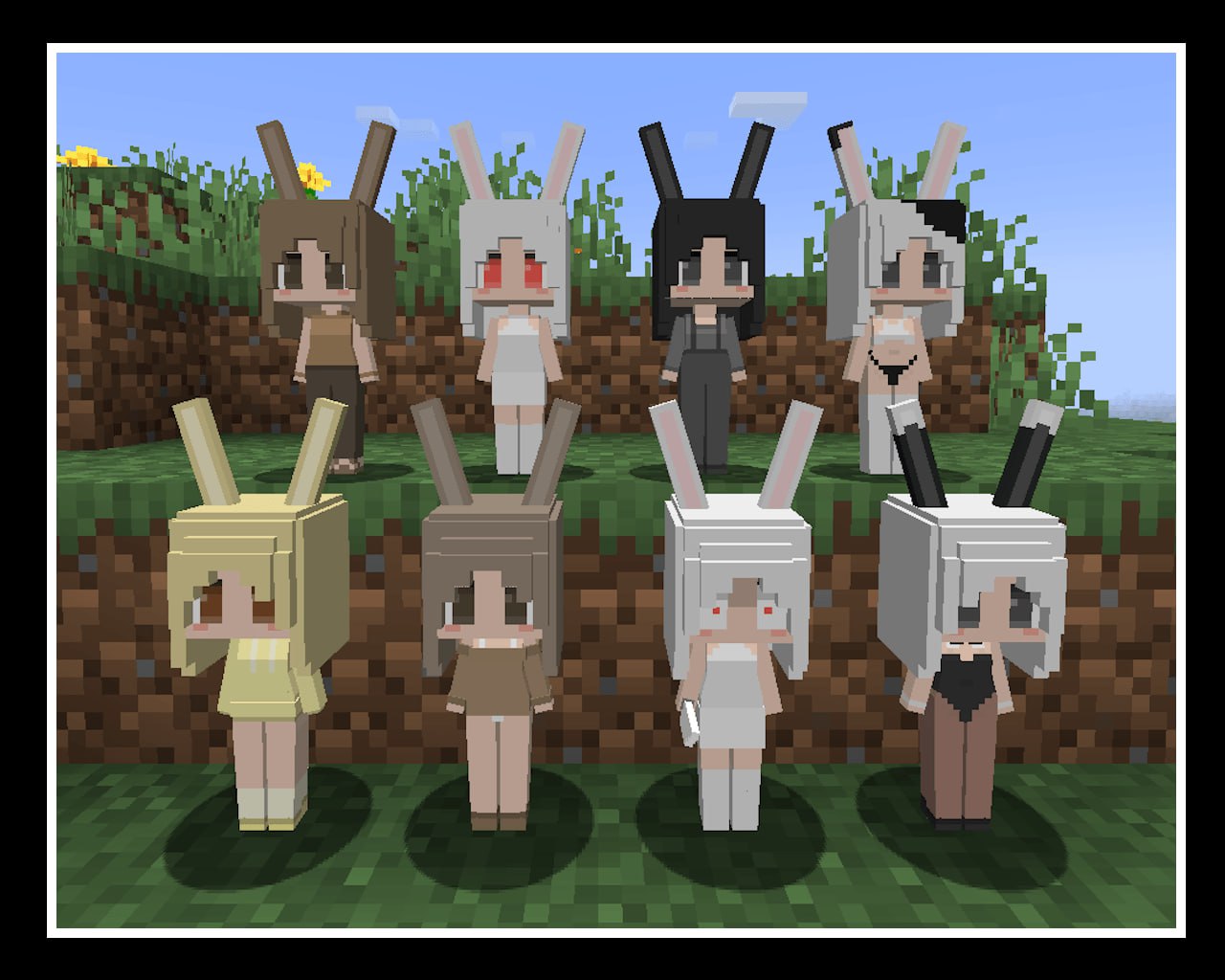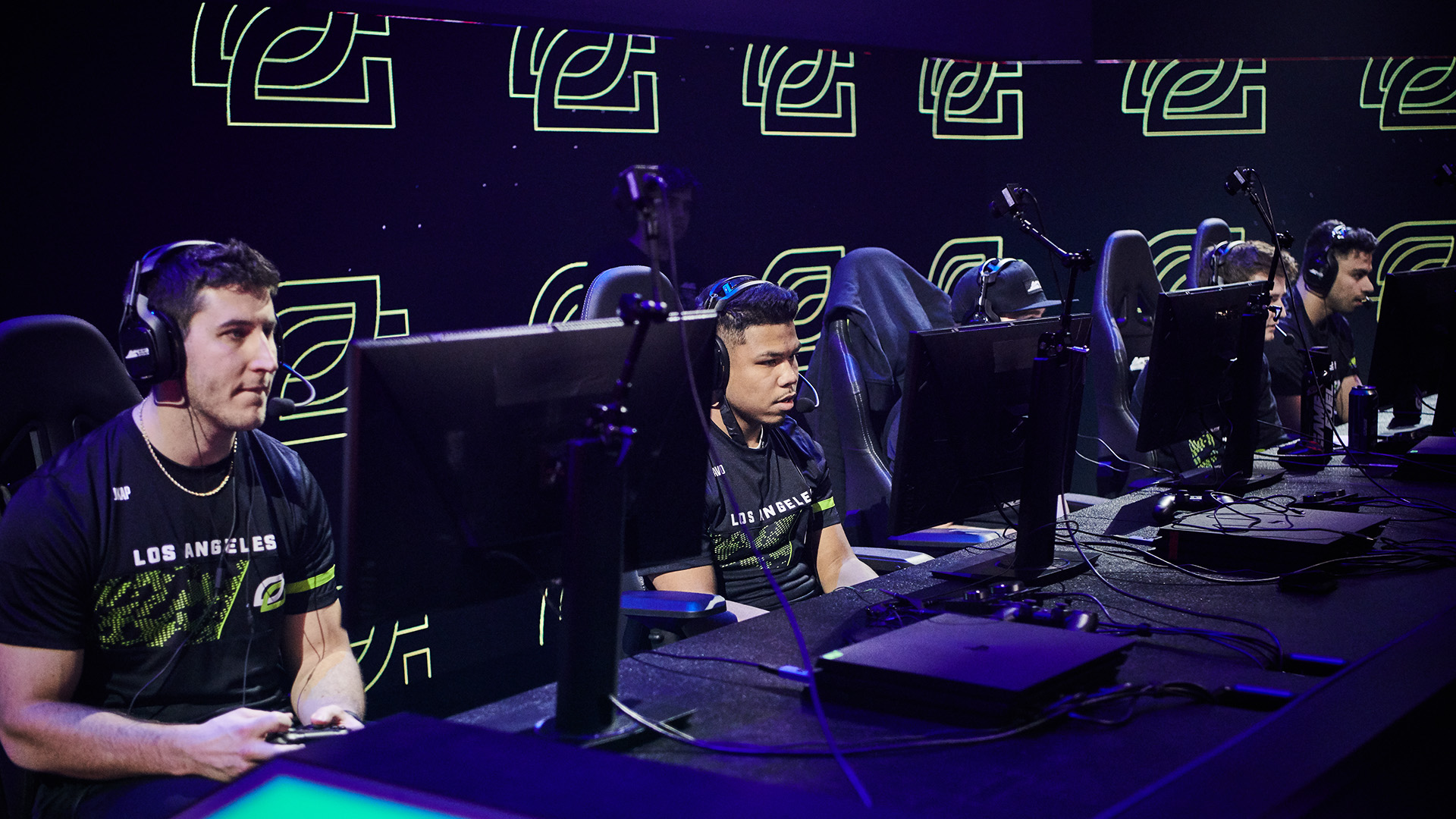Hey there, fellow gamers and aspiring game creators! Have you ever found yourself daydreaming about the perfect video games 2023, one that’s so epic and fun that you can’t help but wish it existed? Well, you’re not alone! Whether you’re a hardcore gamer or just someone who enjoys playing games casually, coming up with unique, exciting, and simple game ideas is a thrilling adventure in itself. In this guide, we’re going to explore the exciting world of game ideation and show you how to uncover that elusive gem of a concept that could become the next big hit. So, grab your controller, put on your thinking cap, and let’s dive into the fascinating journey of discovering how to find the perfect video game ideas! We have compiled a list specifically for game developers. Each of our tips will help you get your creativity back on track and make it easier for you to come up with an amazing game idea.
Choose a Genre and Dive In
Coming up with game concepts from scratch can be quite a challenge for a video game designer, so you might want to start by choosing a game genre to use as a base:
Wizards? Yes! Zombies? Hell, Yes! Or, probably, unicorns in the post-apocalypse world? For example, if you choose a shooter genre, think about the type of ammunition you want to use. Will it be traditional bullets or something more quirky like rainbows? Think about the effect these projectiles will have on the game world, the video game characters, and the surfaces they come into contact with. Will your game give players a sense of joy and accomplishment, or do you want to inspire doubt and moral dilemmas?
As you ponder questions like these, you’ll find that they can quickly become the building blocks of your unique indie game idea. To help you get started, check out this comparison of 2D vs 3D games in the modern video game industry.
Find Success in a Niche
If the genre exercise didn’t quite do the trick for you, here’s an option to kick things up a notch. Instead of merely selecting a game genre, let’s take it a step further by choosing a niche as well.
Rather than settling for a generic RTS, why not delve into a fantasy-driven RTS? Or how about transforming a typical racing game into a thrilling sci-fi racing experience? What happens when you challenge yourself to narrow your game idea focus even further?
Observe the World for Inspiration
If you’re looking for good video game ideas, start by standing up from your sofa and looking around. People can inspire you. Social-related gaming is a real success now. See how your neighbor walks the dog in the morning on Broadway? Make a NYC thriller out of this!
Think about all the games you’ve played: which ones really stuck with you? What did you like and dislike about them, and are there any aspects you wish they had explored more?
You can take a few different paths to find inspiration:
- Go back to games you loved or hated. Rediscover what you loved about these titles and use them as inspiration. Think about what didn’t appeal to you and come up with ways to improve those aspects.
- Also, take the time to explore classic games like Super Mario Bros. – they are classic for a reason, providing the foundational gameplay for all future 2D platformers. Consider how you can update and revamp these classic principles to appeal to a new audience of gamers. Maybe add some ghosts?
- Explore indie games. Immerse yourself in titles such as Proteus, The Forgotten City, and The Red Strings Club to gain a better understanding of what engages today’s players.
This is the ideal time to try out those game night ideas adults always wanted to try, as it could provide the inspiration you need to unlock your own ideas for indie games.
And if someone asks why you’re still playing games at three in the morning, you can tell them it’s for science. (You’re a gaming enthusiast, after all.)
SCAMPER Method
Let’s dive into the realm of intricate marketing concepts for a video game idea creation, but don’t worry; this one’s worth your attention.
The SCAMPER method, conceived by Michael Michalko, the author of Thinkertoys, offers a fantastic way to spark your game development creativity. Take an existing game you admire and aspire to emulate, then pose these seven questions:
- Substitute: What elements of this game could be swapped out?
Example: Replace the traditional leveling system with a skill tree progression.
- Combine: How could you merge various features to create something even more captivating?
Example: Like Fortnite combined building mechanics with a battle royale format.
- Adapt: What can you incorporate to give this game a contemporary feel?
Example: Emulate how The Legend of Zelda: Breath of the Wild introduced open-world exploration.
- Modify, Magnify, Maximize, or Minimize: What aspects can you tweak for a better player experience?
Example: Adjusting weapon stats in a shooter game to create more balanced gameplay.
- Put to Other Use: Can a game element serve a different purpose?
Example: Using the “stealth” mechanic from Metal Gear Solid in a non-stealth game for unique challenges.
- Eliminate: What can be simplified or omitted for smoother gameplay?
Example: Removing complicated crafting systems in favor of a streamlined inventory management.
- Reverse, Re-engineer, or Rearrange: How would flipping an aspect of this game change the player experience?
Example: Reversing the traditional hero’s journey narrative structure, similar to what Spec Ops: The Line did.
The SCAMPER method is an efficient technique that guides you to address the core questions essential for crafting exceptional game design.
Seek Player Input
Henry Ford’s famous quote goes like this: “If I asked people what they wanted, they would have told me faster horses.” It’s a thought-provoking statement.
The truth is, humans often don’t realize what they truly want until they experience it. It’s a quirk of human nature. However, there are times when it’s much easier for people to express what they don’t want.
Let’s take food as an example. Picture yourself meeting a friend for lunch, and they ask, “What are you in the mood for?” Sometimes, you might not have a clear answer. But you could easily say, “I’m not really feeling Mexican, Chinese, or pasta today.” It’s like a process of elimination, narrowing down your choices until you land on something that sounds appealing!
But there is a great platform, where you can find new impressions or ask about game username ideas: Reddit. It is a place where people share the game ideas they would never possibly create, but in the hundreds of trash ideas you can find a really brilliant video game idea. It is also a method of how to sell a video game idea to developers.
If you’re eager to dive into a lively gaming community, pay a visit to the GameMaker Community Forum. There, you can engage in conversations about game development alongside numerous indie game creators who share your passion.
Understand What Video Games Players Avoid
When it comes to video games, it’s essential to grasp what players steer clear of. Gamers avoid frustratingly difficult levels that seem impossible to conquer. They also shy away from games with poor graphics or dull storylines, as those don’t engage them. Players tend to dodge games that have too many microtransactions, feeling like they’re pressured to spend money. Annoying and excessive in-game ads are another turn-off. Lastly, gamers avoid titles that lack replay value; they want games that keep them coming back for more fun. Understanding these aspects helps game developers create better and more enjoyable gaming experiences for all of us.
Fix Your Game Ideas on Paper
Inspiration has a habit of showing up unexpectedly. Always keep a notepad or use a simple note app on your phone within arm’s reach. Whenever an idea pops into your mind during your daily activities, jot it down. This not only prevents you from forgetting that amazing video game concept you brainstormed while walking the dog but also serves as a valuable resource during creative dry spells.
Now, block out distractions and close everything else. Dedicate 15 minutes to write down every idea that pops into your head without filtering or judging. Just get it all on paper. Afterward, take some time to review your notes. Some of those words on those pages might turn out to be golden ideas. At the very least, you’ll clear some mental space for deeper thinking. Make your diary your real random game idea generator.
Extract Inspiration from Books
Video games aren’t the sole wellspring of inspiration. Television, movies, music, books, and conventional artworks can all ignite some of the most remarkable video game concepts.
For instance, delve into the realm of literature. Books like J.K. Rowling’s “Harry Potter” series could spark ideas for magical, immersive gaming worlds. The epic journeys in Tolkien’s “The Lord of the Rings” might inspire sprawling adventures. Even dystopian futures portrayed in books like George Orwell’s “1984” can give rise to thought-provoking game narratives.
Here’s a table listing some popular video games that were created based on books:
|
Game Title |
Book/Author |
Release Year |
Genre |
|
The Witcher 3: Wild Hunt |
Andrzej Sapkowski |
2015 |
Action RPG |
|
Metro 2033 |
Dmitry Glukhovsky |
2010 |
First-Person Shooter/ Survival Horror |
|
The Lord of the Rings: The Two Towers |
J.R.R. Tolkien |
2002 |
Action-Adventure |
|
Alice: Madness Returns |
Lewis Carroll (Alice’s Adventures in Wonderland) |
2011 |
Action-Adventure/ Psychological Horror |
|
Fahrenheit (Indigo Prophecy) |
David Cage (Fahrenheit 451 by Ray Bradbury) |
2005 |
Interactive Drama/ Adventure |
|
Bloodborne |
H.P. Lovecraft (Cthulhu Mythos) |
2015 |
Action RPG/ Horror |
|
The Chronicles of Riddick: Escape from Butcher Bay |
Jim & Ken Wheat (Riddick film series) |
2004 |
First-Person Shooter/ Stealth |
|
The Call of Cthulhu: Dark Corners of the Earth |
H.P. Lovecraft |
2005 |
Survival Horror/ Adventure |
|
The Saboteur |
Sándor Szábo (The Saboteur: A Novel) |
2009 |
Action-Adventure/ Open World |
|
Metro Exodus |
Dmitry Glukhovsky (Metro 2033 series) |
2019 |
First-Person Shooter/ Survival Horror |
So, whether it’s “The Little Shop Of Horrors” with its exotic plant life, the evocative religious hymn “Bringing In The Sheaves,” or the zany mini-game antics of “Dick and Dom In Da Bungalow,” inspiration can be found in diverse facets of life, including the rich tapestry of books.
Screen Time: TV, Movies, and Beyond
Screen time can be a goldmine for sparking ideas in game creation. Watching TV shows and movies can trigger creative inspiration. For instance, a thrilling car chase scene in a movie might inspire a high-speed racing game concept.
A mysterious detective series can lead to a puzzle-solving adventure game. Even documentaries about space exploration could spark ideas for futuristic sci-fi games.
Moreover, screen time can help you understand storytelling, character development, and visual effects, all crucial elements in game design. So, the next time you’re binge-watching your favorite series, keep an eye out for that game-changing inspiration!
Learn by Imitation
When it comes to creating video games, the old saying “Monkey See, Monkey Do” holds some wisdom. Think about it: what’s your all-time favorite game? Chances are, there are games you’ve played and adored in the past.
These games you love can be a goldmine of inspiration for your own game-making adventures. While copying them isn’t the way to go, you can definitely use them as a source of ideas. They can help you brainstorm and craft something uniquely exciting. So, don’t hesitate to let your favorite games guide your creativity as you embark on your own gaming journey!
Use Game Idea Generator
Game idea generators can be an enjoyable way to kickstart your creative thinking, though it’s essential not to take the video game concepts they generate too literally. For instance, the idea of a “tycoon game where you breed sports teams until you own everything” might seem almost impossible (and somewhat unsettling, to be honest).
However, sometimes a single phrase like “until you own everything” can spark your imagination and a video game idea generator will just move this idea forward. With a bit of tweaking, such as rephrasing it as “A tycoon game where you build and acquire businesses until you own everything,” you can suddenly breathe life into the concept.
If you’re eager to start generating video game ideas, Orteil’s Game Idea Generator and Let’s Make A Game offer two free tools that can help you get your creative gears turning.
Just Begin: Start the Creative Process
The final approach is direct and focused on taking action: Create games. Even if you don’t have a strong attachment to the initial idea, diving into game development allows you to discover what works and what doesn’t.
Throughout the journey, you’ll find yourself inspired, facing challenges, pushing your limits, and, at times, even getting a bit frustrated with the video game music you pick. But the key is that you’ll be actively creating. When you’re in the creative process, you gain invaluable insights that you can’t simply observe from the sidelines or learn passively.
How to Safeguard Your Game Idea
Your idea is your most precious asset. Whether you’re a solo indie developer or part of a game studio, ensuring that your game concept remains safe from theft or misuse is paramount. So, how to pitch a game idea?
Secure a Patent
A patent is a legal game design document that grants you exclusive rights to your game idea, protecting it from being copied or used without your permission. However, it’s essential to note that obtaining a patent for a game idea can be challenging, as it typically applies more to tangible inventions than abstract concepts.
To patent a game idea, it must exhibit a unique and novel feature that sets it apart from existing games, especially if you used a game creator online to depict the idea. This feature can be a groundbreaking gameplay mechanic, a novel storytelling approach, or a revolutionary technological innovation. Consulting with a patent attorney who specializes in gaming can be invaluable in navigating this complex process.
Leverage Copyrights
Copyrights are powerful tools for protecting your game’s specific artistic and creative elements. This includes the game’s code, graphics, video game music, and any written content associated with it. As soon as you create these elements in a tangible form (e.g., writing the game’s code or designing its characters), you automatically have copyright protection.
While copyrights don’t protect the underlying idea or concept of your game, they do safeguard the expression of those ideas. In practical terms, this means that others can’t directly copy your game’s unique assets or source code without your permission.
To bolster your copyright protection, consider registering your work with the appropriate government agency (such as the U.S. Copyright Office in the United States). Registration provides additional legal benefits, including the ability to sue for statutory damages if someone does infringe upon your copyrighted material.
Establish Trademarks
Trademarks protect the branding and identity of your game. This includes the game’s name, logo, and any distinctive symbols associated with it. Trademarks are crucial for preventing others from using a similar name or logo that might confuse consumers or dilute your game’s brand.
To establish a trademark, you’ll need to conduct a thorough search to ensure your chosen name or logo is unique and not already in use by another company. Once you’ve determined that your trademark is unique, you can apply for trademark protection with the appropriate government agency, such as the United States Patent and Trademark Office (USPTO) in the U.S.
Safeguard Company Trade Secrets
In addition to legal protections, maintaining a culture of confidentiality within your game development with unity team is essential. Often, game ideas evolve and flourish through collaboration, but it’s crucial to establish clear policies and agreements that outline what constitutes a company trade secret and how it should be handled.
Confidentiality agreements, also known as non-disclosure agreements (NDAs), can be used to legally bind employees, contractors, and collaborators to keep sensitive information about your game, including its concept and development details, confidential.
Moreover, limit access to critical game development materials on a need-to-know basis. This helps minimize the risk of information leaks and ensures that only those who require specific knowledge about the project have access to it.
In conclusion, safeguarding your game idea involves a multi-faceted approach that combines legal protections with internal security measures. By securing patents, leveraging copyrights, establishing trademarks, and safeguarding company trade secrets, you can significantly reduce the risk of your game concept falling into the wrong hands. Remember that consulting with legal professionals experienced in the gaming industry can provide invaluable guidance tailored to your specific needs and circumstances.


